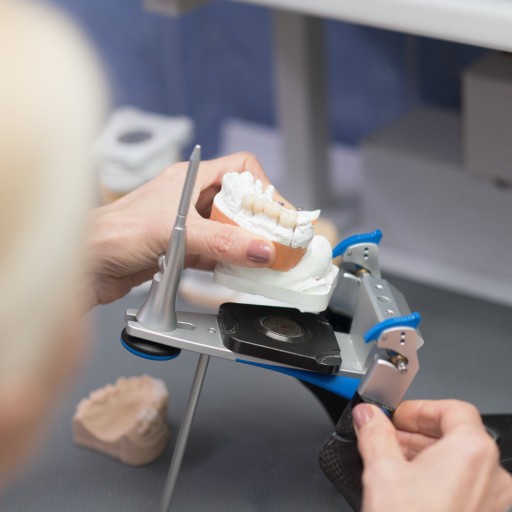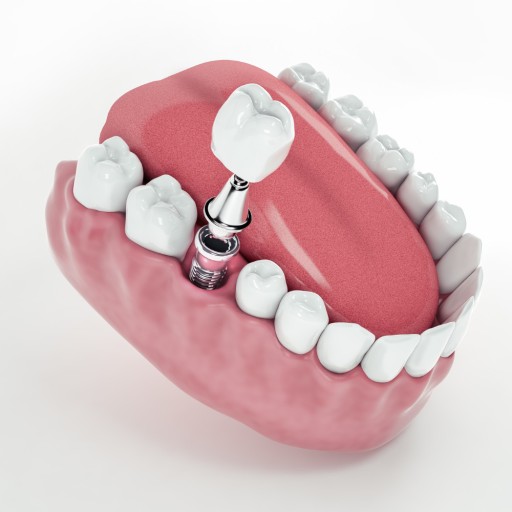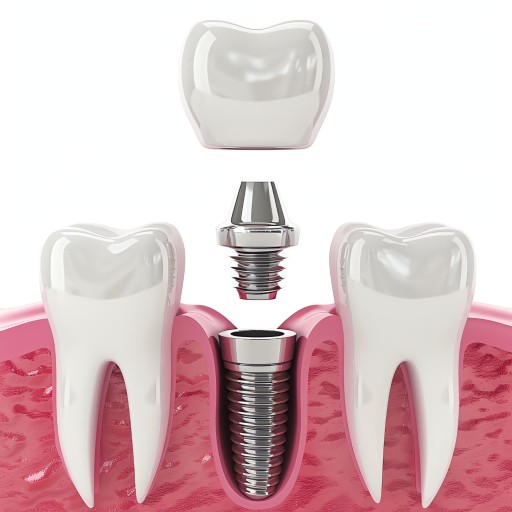Dental Implant
10 results foundDental Implants: A Permanent Solution to Missing Teeth
Tooth loss affects not only your smile, but also your confidence and overall oral health. The loss of teeth, whether due to injury, decay, or other dental concerns, will cause a multitude of problems, including chewing and speaking, and often creates shifting of surrounding teeth. Fortunately, dental implants provide a long-lasting solution for restoring the function and aesthetics of one's teeth. In this article, we are going to look at what dental implants are, the benefits derived from them, the procedure, and why they are ideal for many in the desire to restore a lost smile.
What Are Dental Implants?
A dental implant is a surgical component inserted into the jaw to serve as a replacement for the missing root of a tooth. It provides a stable base to attach a tooth, bridge, or denture for replacement. Dental implants are made with compatible materials, usually titanium, that literally integrate with the jawbone over time and serve as permanent solutions.
Unlike traditional dentures or bridges, dental implants do not involve the preparation of adjacent teeth; thus, making them a much more conservative and long-lasting approach to tooth replacement.
Who Is a Good Candidate for Dental Implants?
Most people who have missing teeth and are relatively healthy can benefit from dental implants. The candidates who are ideal for implants include:
Healthy gums and enough bone density: You must have sufficient jawbone density to support the implant. If the bone is too thin or soft, strengthening of the jawbone by bone graft first must be done before implantation.
People who do not smoke or who can stop smoking: Smoking impairs the healing process and raises the possibility of implant failure. Most smokers are advised to remain off for a while both before and after the operation.
Good oral hygiene habits: Implants demand optimum oral hygiene for the best lifetime outcome. Hence, regular brushing, flossing, and dental visits are required.
People who have one or more missing teeth: Whether you have one missing tooth or several, with the help of dental implants, your smile can be regained. The implants also provide support for bridges or dentures and thus can be a total solution for missing teeth.
The Procedure for Getting Dental Implants
Implant placement in the jaw normally proceeds in several stages, separated by months, since healing and incorporation of the implant into the jawbone must be appropriate. In general, steps to be involved are as under:
Consultation and Planning: During the initial consultation, a dentist will give a general assessment of your oral health-anything from X-rays to 3D scans to assess even the density of bone. Based on this evaluation, a dental professional may make an individualized treatment plan.
Implant Placement Surgery: It is the first part of the surgery where the placement of the implant is done inside the jawbone. After local anesthesia, a small incision is made in the gum tissue by the dentist, exposing the jawbone. After this, he drills a small hole into the bone into which the titanium implant is inserted. When it is in place, the gum is stitched up.
Osseointegration: During the next 3-6 months, the implant will start a healing process known as osseointegration. Through osseointegration, the surrounding bone attaches to and locks the implant into place, forming a solid foundation for the replacement tooth. This process is important for the implant to work.
Abutment placement: After the implant has totally integrated in the bone, then an abutment is placed on top of the implant. An abutment is essentially a little connector that would retain the replacement tooth.
Attachment of the Restoration Tooth: When gums around the abutment have healed, an artificial crown, bridge, or denture is attached to the abutment. This is the final step, and you go home with a fully restored tooth or teeth.
Advantages of Dental Implants
Dental implants make many of the traditional replacement tooth options look minuscule. Some of the leading advantages are:
A Natural Appearance: The implants are designed to look and feel just like natural teeth. The crown placed on the implant is custom-made to match the shape, size, and color of your existing teeth, making for an aesthetically pleasing result.
Durability and Longevity: Dental implants are very durable and can last for several years, decades even, if properly taken care of. They do not decay or discolor; thus, they can be a long-term tooth replacement option.
Improved Functionality: Implants function like natural teeth and permit you to eat, speak, and smile without hindrance. They restore the ability to chew comfortably without the irritation and embarrassment from removable dentures.
Preventing Bone Loss: With dentures or bridges, dental implants assist in the upkeep of bone structure within your jaw. When a tooth is missing, the bone at the location of the gap can start to deteriorate over some period. These implants thus stimulate the bone to prevent bone loss and preserve facial structure.
No Need to Change Adjacent Teeth: Unlike dental bridges, in which you would need the reshaping of the nearby natural teeth, dental implants will not impact natural healthy teeth. It is a good result, and this makes it much more conservative for tooth replacement.
How to Care for and Maintain Dental Implants
To have long-lasting effects from your dental implants, care is an important factor to consider. Here are some guidelines on how to take care of your implant:
Good Oral Hygiene: One should avoid building up plaque and further infection of the gums, which would affect the implant. Avoid using a hard-bristled toothbrush and abrasive toothpaste, which could scratch the implant.
Regular Check-up: It is required to have regular dental check-ups and cleaning. The dentist would be able to assess the condition of the implant and would check if there is no problem occurring with the surrounding gums or bone.
Avoid hard chewing objects: Such as ice, pens, or hard candy, which would crack an implant or the crown of it; hence, it should not be used.
Quit Smoking: Smoking prolongs healing and increases the likelihood of implant failure. This is best to be quit prior to the implant so that the success could be assured for a longer period.
Possible Risks and Complications
With the high success rates, there are associated risks with the dental implant procedure. These may include:
Infection: Since this is a surgical procedure, there are possibilities of infection at the site of the implant, which can be minimized by following the post-surgical instructions given by the dentist and proper oral hygiene.
Implant Failure: This is the rare failure of integration between the bone and implant, or loosening of it. This may be caused by excessive stresses on it, or because of lack of good bone density.
The risk of nerve injury is slight, however if it happens the result may be an area of numbness or tingling of the gums, lips, or chin. This is minimized with the focus to meticulous planning, and good surgical technique.
How Much do Dental Implants Cost?
The prices depend on many factors, including the number of implants to be in place, location, and even the difficulty of treatment. While implants are generally more expensive than dentures and bridges, they often prove to be well worth the investment due to the benefits they offer over a long time.
That said, upfront discussion about cost with your dentist is very important, as well as inquiries about any payment plan, insurance, or financing options available to you.
Is a Dental Implant Right for You?
For anyone looking to replace teeth with something long-lasting and strong, and natural-looking, implants come out as one of the best options. You may consider dental implants to restore your smile if you are in good health, have adequate density within the bones, and are committed to keeping good oral hygiene.
Consult an experienced dentist who will be able to tell you whether dental implants will suit your indications and discuss the risks, benefits, and expenses of the procedure.
Conclusion
Dental implants are a revolutionary solution for those who have lost teeth. Natural-looking and with added durability, they are the permanent means to restore one's smile, build confidence, and improve the overall quality of life. Opting for dental implants is a very long-term investment you are making in your oral health and self-esteem.










